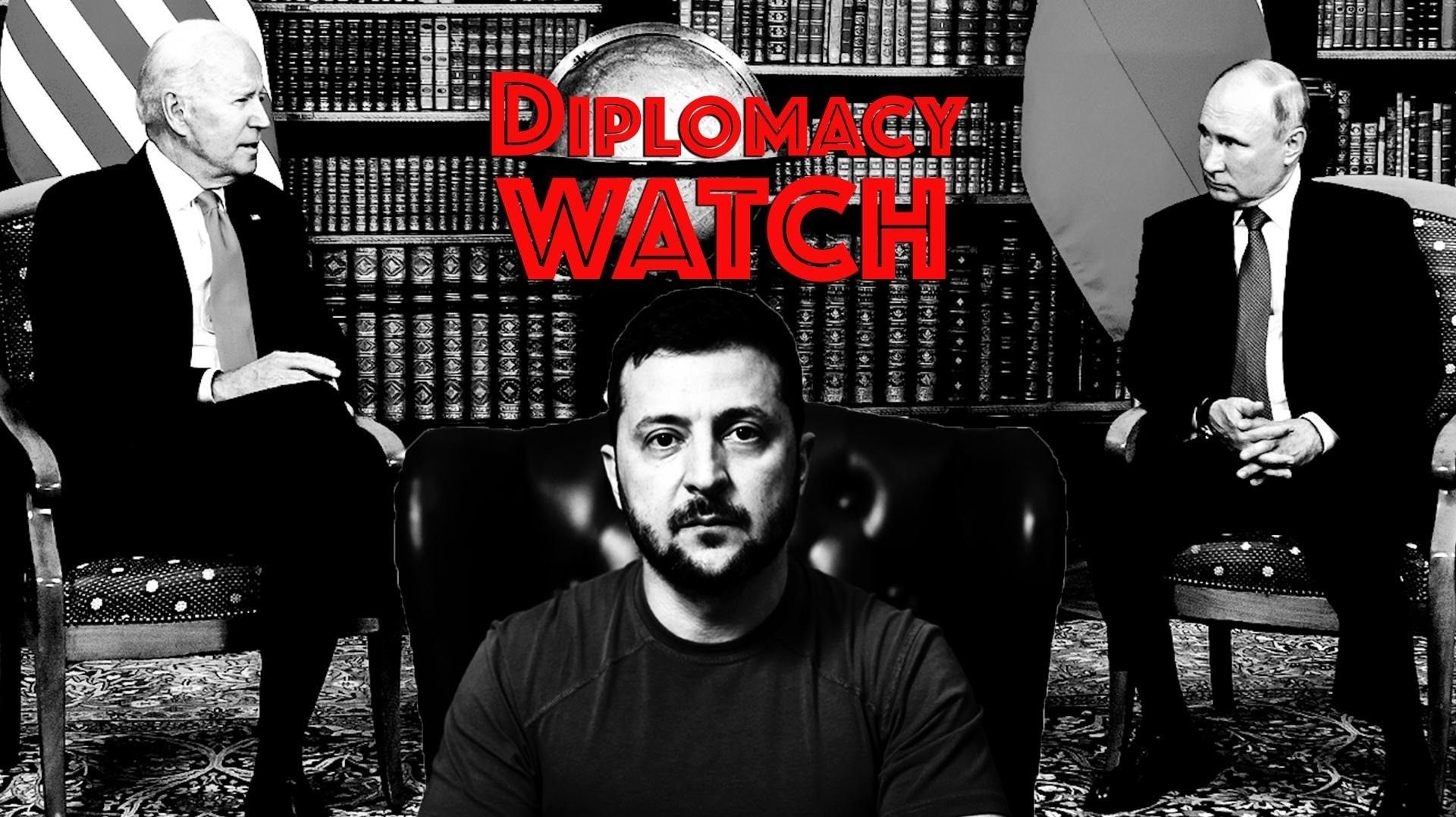Next Monday, Russian President Vladimir Putin is set to step foot in a NATO country for the first time since his military invaded Ukraine in 2022.
The Russian leader is headed to Turkey, where he will meet with Turkish President Recep Tayyip Erdogan to discuss a potential new deal to facilitate the export of Ukrainian grains through the Black Sea.
“The previous grain deal worked within a certain mechanism,” said Turkish Foreign Minister Hakan Fidan earlier this week. “Now it has been seen that there is a possibility of going with a different mechanism, and now there are efforts to concretize this possibility.” This new mechanism would build on Ukraine’s jury-rigged approach to Black Sea exports in which Ukrainian ships closely hug the coasts of NATO countries in order to evade the Russian blockade.
The news comes as a hopeful sign amid a difficult period for Ukraine. After months of talks, it looks increasingly likely that the U.S. Congress will fail to pass a new package of military aid for Kyiv, leaving Ukraine in a difficult position as the primary fighting season nears again.
Meanwhile, Ukrainian President Volodymyr Zelensky is reportedly considering major shake-ups in his administration, and his forces in the east appear poised to lose Avdiivka, a town the Kyiv has fought hard to defend from Russian forces.
Reviving the grain deal would bring a measure of certainty amid this sea of challenges. Perhaps most importantly, it would help lower tensions between Ukraine and the rest of Europe, where farmers have loudly complained that increased imports of Ukrainian foodstuffs are flooding local markets and undermining their business.
Cheap imports of Ukrainian grain have been a particularly problematic issue for Ukraine’s relations with Poland, one of its most vocal allies. In recent months, Polish farmers have blocked border crossings to protest relaxed European Union rules on Ukrainian imports, and some agricultural leaders are now organizing a more comprehensive blockade of the Ukrainian border, coupled with a general strike.
A new grain deal wouldn’t completely solve these problems, but it would certainly help Ukraine at a crucial time.
Of course, all of this relies on the whims of Putin, who ripped up the original Black Sea agreement last year and accused the West of not holding up its side of the deal by allowing exports of Russian fertilizer components. While no Western country was a direct party to the deal, Russian officials argued that it could not be implemented without relaxing some Western sanctions.
The good news for Ukraine is that Putin seems to value his relationship with Erdogan, who has emerged as a key mediator between Russia and the West in the past few years. Next Monday’s meeting will put those ties to the test.
In other diplomatic news related to the war in Ukraine:
— EU foreign policy chief Josep Borrell arrived in Kyiv Tuesday on a trip meant to highlight European support after the bloc passed a $54 billion aid package for Ukraine last week, according to Reuters. Borrell also reiterated the EU’s promise to dramatically ramp up its production of artillery shells to help supply Ukraine. Zelensky, for his part, asked the EU leader to prioritize arming Kyiv over building the stockpiles of European states. “Halting the export of artillery munitions to third EU countries is the only possible correct solution given the current security challenges,” he said.
— Sweden has ended its investigation into the 2022 attacks on the Nord Stream pipeline that previously carried natural gas from Russia to Germany, writes Kelley Vlahos of Responsible Statecraft. The decision came after prosecutors determined that “Swedish jurisdiction does not apply,” leaving Denmark and Germany as the only states that continue to investigate the incident. Theories abound about the potential attacker, but, as Vlahos notes, “All signs since the year anniversary of the blasts have been pointing — in bright neon — to Ukraine as the culprit.”
— Turkish drone company Baykar says it has broken ground on a factory in Ukraine to produce its signature Bayraktar drones, which became a symbol of Ukrainian resistance in the early days of the war, according to Reuters.
— Members of Hungary’s ruling party boycotted a vote Monday on whether to approve Sweden’s accession to NATO, blocking efforts to ratify Stockholm’s bid, according to Al Jazeera. An opposition lawmaker argued that Orban hopes to “make headlines in the international press while making a gesture to Russian President Vladimir Putin by undermining the unity of NATO and the EU.” The prime minister’s party, for its part, said in a statement that they would like to see Sweden’s bid proceed, “but we are expecting the Swedish prime minister to visit Hungary first” given the importance of the issue.
U.S. State Department news:
In a Monday press conference, State Department spokesperson Vedant Patel expressed support for Turkish efforts to revive the Black Sea grain deal. “We continue to feel that it’s critical that Ukrainian grain get to the places that it needs to go,” Patel said. “If there is credible progress that can be made in that space, it certainly would be a welcome one.”















